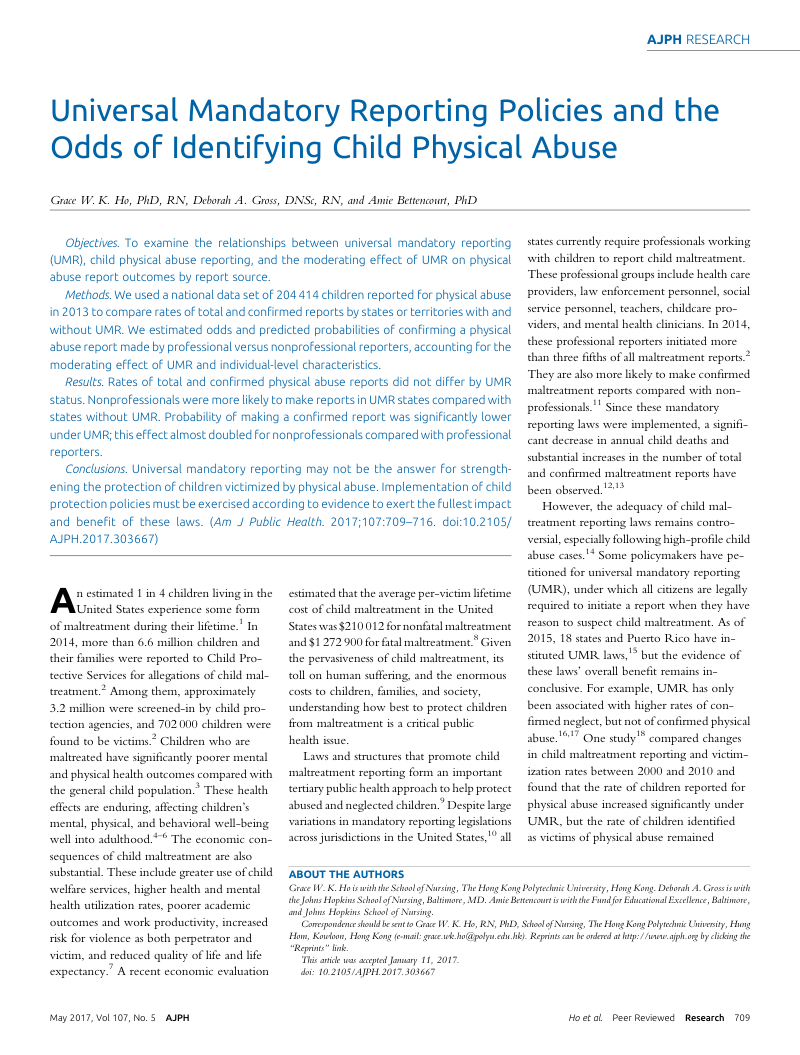2017 Johns Hopkins School of Nursing study concludes that universal mandatory reporting is correlated with lower confirmed reports of abuse.
- Type
- Academic / Technical Report
- Source
- Grace W. K. Ho Non-LDS
- Hearsay
- Direct
- Reference
Grace W. K. Ho, Deborah A. Gross, and Amie Bettencourt, "Universal Mandatory Reporting Policies and the Odds of Identifying Child Physical Abuse," American Journal of Public Health 107 no. 5 (May 2017): 709-716
- Scribe/Publisher
- American Journal of Public Health
- People
- Grace W. K. Ho, Deborah A. Gross, Amie Bettencourt
- Audience
- The Academy
- Transcription
Abstract
Objectives: To examine the relationships between universal mandatory reporting (UMR), child physical abuse reporting, and the moderating effect of UMR on physical abuse report outcomes by report source.
Methods: We used a national data set of 204 414 children reported for physical abuse in 2013 to compare rates of total and confirmed reports by states or territories with and without UMR. We estimated odds and predicted probabilities of confirming a physical abuse report made by professional versus nonprofessional reporters, accounting for the moderating effect of UMR and individual-level characteristics.
Results: Rates of total and confirmed physical abuse reports did not differ by UMR status. Nonprofessionals were more likely to make reports in UMR states compared with states without UMR. Probability of making a confirmed report was significantly lower under UMR; this effect almost doubled for nonprofessionals compared with professional reporters.
Conclusions: Universal mandatory reporting may not be the answer for strengthening the protection of children victimized by physical abuse. Implementation of child protection policies must be exercised according to evidence to exert the fullest impact and benefit of these laws.
. . .
Taken to gether, our results suggest that, at best, UMR does not appear to be achieving its intended goal of improving identification of children victimized by physical abuse. In fact, UMR can potentially lead to poorer outcomes. For example, more reports made but without sufficient evidence can divert valuable but limited resources from endangered children who are actually in need of protection.
. . .
- Citations in Mormonr Qnas
The B. H. Roberts Foundation is not owned by, operated by, or affiliated with the Church of Jesus Christ of Latter-day Saints.

